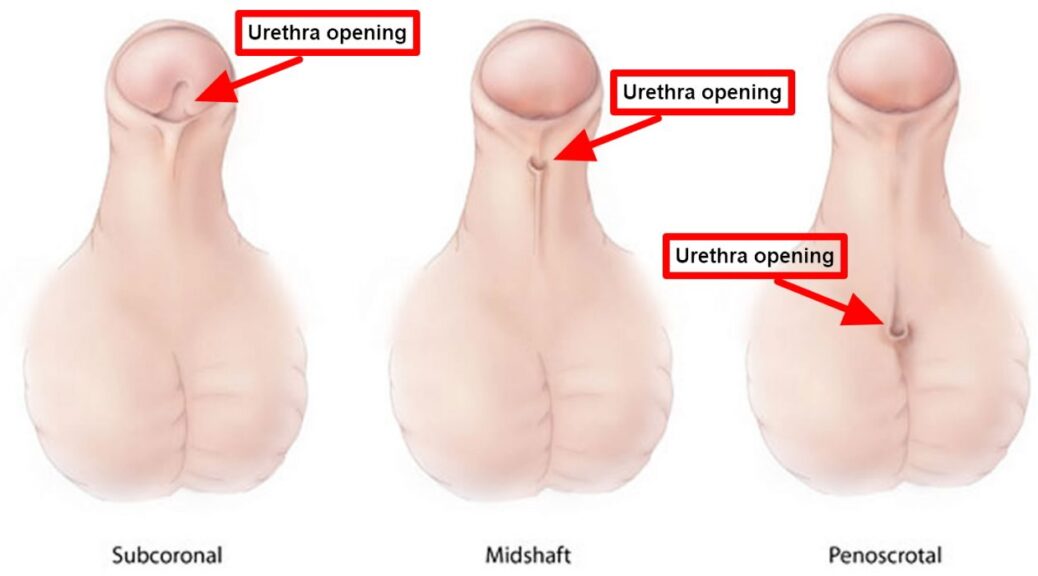Hypospadias is a relatively common genital abnormality that affects approximately one in every 250 male newborns. In this condition, the opening of the urethra (where urine exits the body) is located on the underside of the penis instead of at the tip. This can cause difficulties with urination and sexual function, and may also have psychological effects on affected individuals. In this article, we will explore the causes, symptoms, diagnosis, and treatment options for hypospadias in more detail.
Causes of Hypospadias
The exact causes of hypospadias are not fully understood, but it is thought to be caused by a combination of genetic and environmental factors. Studies have shown that certain environmental factors, such as exposure to certain chemicals during fetal development, may increase the risk of hypospadias. These chemicals include phthalates and bisphenol A (BPA), which are commonly found in plastics and other household products.
Other risk factors for hypospadias include a family history of the condition, maternal age (particularly over the age of 35), and certain medications taken during pregnancy, such as some anti-seizure medications and hormone treatments. There is also some evidence to suggest that low birth weight and premature birth may increase the risk of hypospadias.
Symptoms of Hypospadias
The most obvious symptom of hypospadias is the abnormal placement of the urethral opening on the underside of the penis. In some cases, the opening may be located near the scrotum, while in others it may be farther up the shaft of the penis. Other symptoms may include a curved or bent penis, difficulty urinating, and spraying of urine during urination.
In more severe cases, hypospadias may also be associated with other abnormalities, such as undescended testicles or a hooded appearance of the foreskin.
Diagnosis of Hypospadias
Hypospadias is usually diagnosed shortly after birth during a physical exam. The doctor will examine the penis to determine the location of the urethral opening and whether there are any other abnormalities present. In some cases, additional tests may be done to evaluate the severity of the condition and determine if there are any associated abnormalities, such as undescended testicles.
In some cases, doctors may use imaging tests, such as an ultrasound or magnetic resonance imaging (MRI), to get a clearer picture of the urinary tract and determine the best course of treatment.
Treatment of Hypospadias
The treatment for hypospadias depends on the severity of the condition. In some cases, the abnormality may not require treatment, especially if it is mild and not causing any problems with urination or sexual function. However, in most cases, surgery is required to correct the abnormality.
Surgical treatment for hypospadias typically involves reconstructing the urethra and moving the urethral opening to the tip of the penis. This procedure, known as urethroplasty, is usually performed when the child is between 6 and 12 months old. In some cases, additional surgeries may be required to correct any curvature or other abnormalities of the penis.
The surgical procedure for hypospadias is typically safe and effective, with a high success rate in correcting the abnormality. However, as with any surgery, there is a risk of complications, such as bleeding, infection, or scarring.
Complications of Hypospadias
Untreated or improperly treated hypospadias can lead to a variety of complications, including urinary tract infections, difficulty with urination, and sexual dysfunction later in life. In addition, some children with hypospadias may experience psychological issues
Surgical Treatment for Hypospadias
The surgical treatment of hypospadias depends on the severity of the condition. In some cases, the abnormality may not require treatment, especially if it is mild and not causing any problems with urination or sexual function. However, in most cases, surgery is required to correct the abnormality.
Surgical treatment for hypospadias typically involves reconstructing the urethra and moving the urethral opening to the tip of the penis. This procedure, known as urethroplasty, is usually performed when the child is between 6 and 12 months old.
The surgery involves creating a new urethral opening in the correct location and closing the original opening. The surgeon may also need to create a flap of tissue to help reconstruct the urethra. The surgery is typically done under general anesthesia and takes about two to three hours to complete.
After the surgery, the child will need to wear a protective dressing on the penis for about a week. The dressing will help protect the surgical site and prevent infection. The child may also need to use a catheter to help drain urine from the bladder for a few days after surgery.
Complications of Hypospadias Surgery
As with any surgery, there are risks and potential complications associated with hypospadias surgery. These can include bleeding, infection, problems with wound healing, and complications related to anesthesia. However, the risks of surgery are generally low, and most children recover well with few complications.
In some cases, additional surgeries may be required to correct any curvature or other abnormalities of the penis. These surgeries may be performed when the child is older, usually between the ages of three and six years old.
Long-term Outlook for Children with Hypospadias
Most children with hypospadias who receive proper treatment go on to have normal urinary and sexual function. However, some children may experience complications related to their condition, such as urinary tract infections, difficulty with urination, and sexual dysfunction later in life.
In addition, some children with hypospadias may experience psychological issues related to their genital abnormality, such as low self-esteem or depression. Parents can help by being supportive and encouraging their child to ask questions and express their feelings. It’s also helpful to connect with other families who have children with hypospadias, either in person or through online support groups.
Prevention of Hypospadias
Because the exact cause of hypospadias is not known, it can be difficult to prevent. However, there are some steps that may help reduce the risk of hypospadias.
Avoiding exposure to chemicals known to increase the risk of hypospadias, such as phthalates and BPA, during pregnancy may help reduce the risk. These chemicals are commonly found in plastics, food packaging, and personal care products.
In addition, women who are planning to become pregnant should talk to their doctor about any medications they are taking and whether they may increase the risk of hypospadias. Some medications, such as anti-seizure medications and some antibiotics, have been associated with an increased risk of hypospadias.
Conclusion
Hypospadias is a common genital abnormality that can have significant physical and psychological effects if left untreated. However, with proper diagnosis and treatment, most cases of hypospadias can be successfully corrected. If you suspect that your child may have hypospadias, it’s important to talk to their doctor as soon as possible to discuss treatment options.



